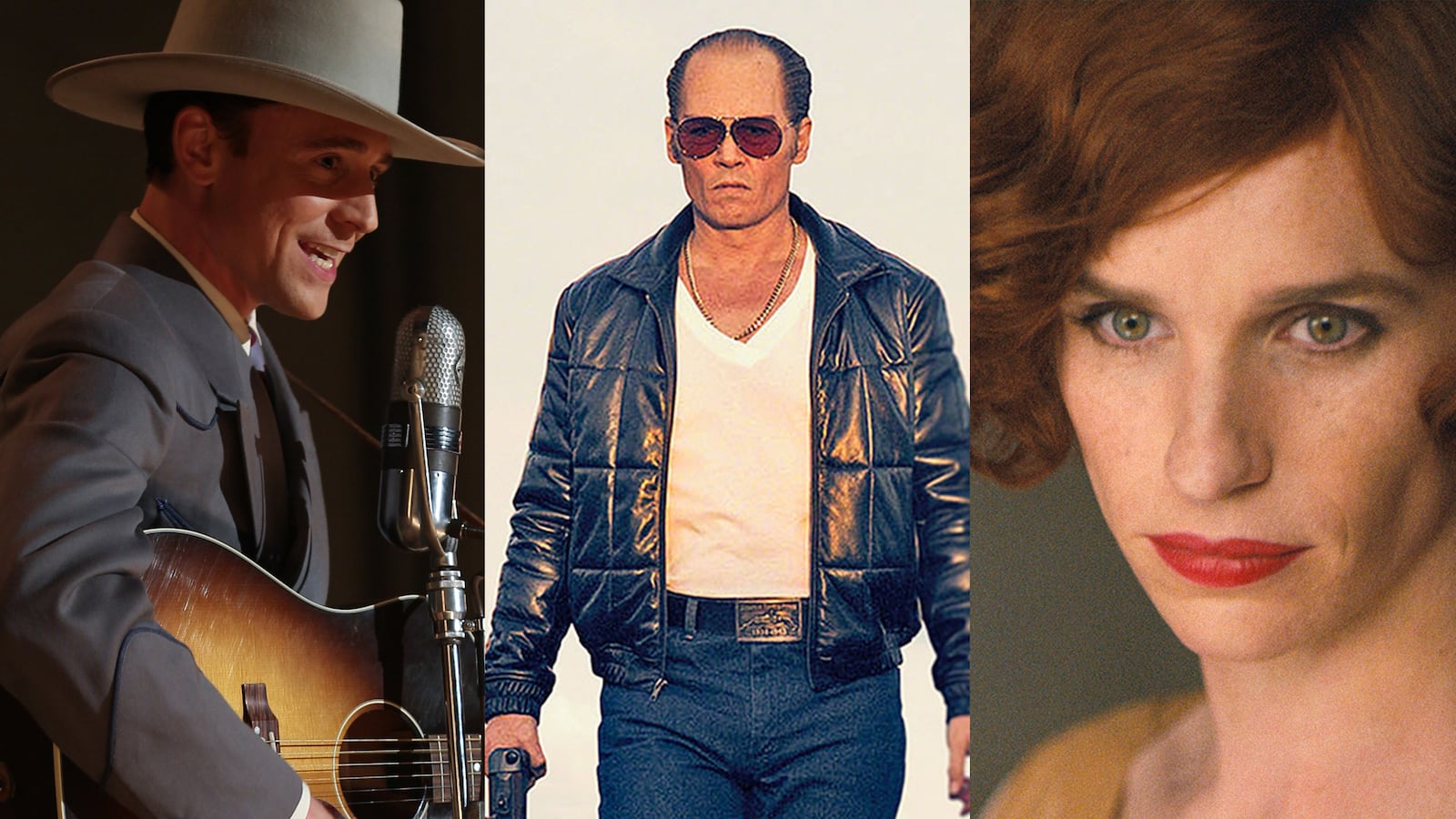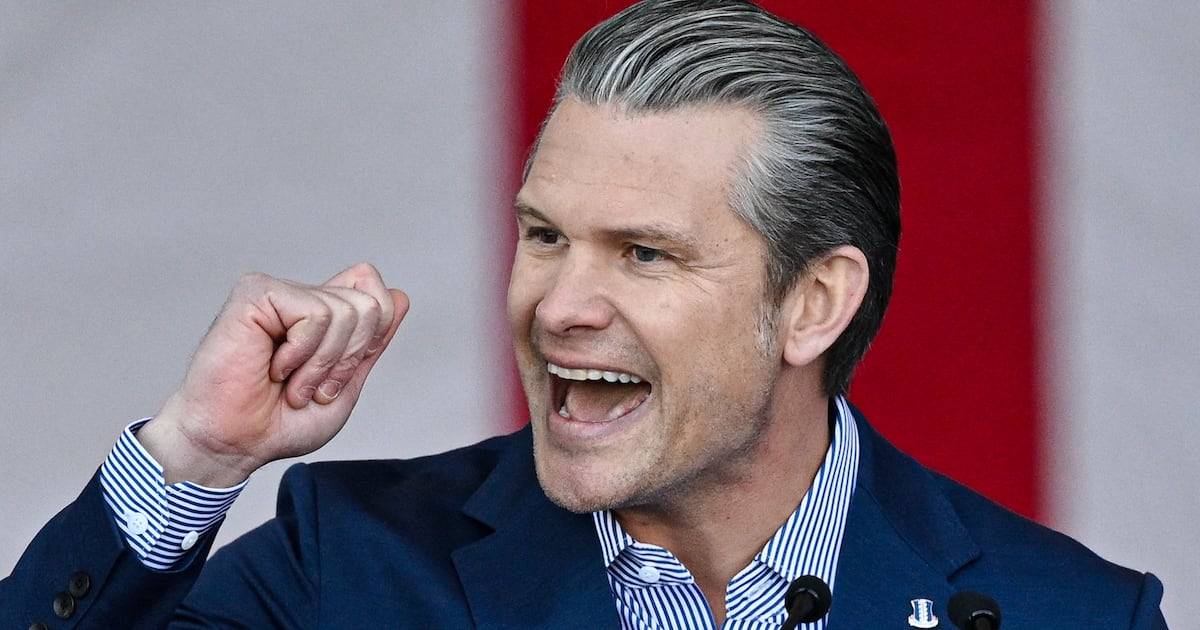Kids are back in school, temperatures are dropping, and finally the movie calendar has turned a new leaf. We’ve made it through the cinema desert of winter and spring, and superhero season has come to a close, so with fall film festival season in full swing and Oscar season still to come, it’s time for the annual plea. By all means keep the drama, keep the grown-ups in movies talking about grown-up affairs, even keep the million and one awards shows themselves, but can we please cool it on the biopics?
That’s not to say there haven’t been great films about real-life figures—just this year there was Bertrand Bonello’s strange and satisfying look at fashion icon Yves Saint Laurent at the art houses and just last month we had Straight Outta Compton dominating the mainstream box office. But everything in moderation, and staring down the list of films to come is getting to be as daunting as looking down the Marvel list of all-too-similar coming attractions.
The onslaught begins this weekend proper with the Johnny Depp comeback vehicle Black Mass, with Depp in the role of notorious gangster Whitey Bulger—he’s played pirates, he’s played Comanche chieftains, and he’s played men with scissors for hands, but his greatest transformation will come as a dude with weird hair and blue eyes in Boston! But Black Mass is only just the beginning. There’s Steve Jobs for the Social Network tech biopic crowd, Bridge of Spies for Argo fans, and the protest-oriented can check out Stonewall and Suffragette. For audiences who subscribe to the less-is-more, say-everything-but-also-nothing approach to biopic titles there’s Legend and Life and Truth and I Saw the Light—about a gangster, a movie star, a newscaster, and a country music star respectively, each one no doubt just as revealing and specific as their titles suggest they’ll be.
The buzziest of all is Tom Hooper’s The Danish Girl—the story of Lili Elbe, the first trans woman to undergo gender reassignment surgery and maybe the most likely candidate among these movies for a King’s Speech-like box office success. The film has already drawn the ire of trans activists, who have protested the casting of straight male star Eddie Redmayne in a role that might have provided a rare opportunity for a trans actress to shine. Redmayne isn’t the first straight male actor to take on trans women’s roles, and the backlash to his casting seems to recall the pushback Jared Leto got for his own based-on-a-true-story trans Oscar bait, as Rayon in Dallas Buyers Club.
Transformation is a big part of how biopics market themselves and despite the many assurances of filmmakers that the true goal was to honor the life of the film’s subject, there’s always something a little like a circus freak show attraction—watch Daniel Day-Lewis become Abraham Lincoln, right before your eyes! No one on the scene for these movies would ever admit to it, but it’s a universally known truth that the bigger the transformation—say Eddie Redmayne not as a trans woman but as a motor neuron-afflicted Stephen Hawking instead—the bigger the splash the film might make on the awards circuit. Say what you will about Harvey Weinstein, but his Oscar campaign last year for The Imitation Game was at least honest about its lofty artistic ambitions: “Honor the man. Honor the movie.”
The state of the Hollywood biopic hasn’t always been bleak, notably in the ’80s there were a string of solid movies based on the lives of real women, beginning in 1979 with Norma Rae, and continuing with Frances, Silkwood, and Camille Claudel. Those films were lifted by the commitment of their central performers, who after a decade where male roles dominated the screen, clearly dug into the opportunity to show off what they could do given the resources. But they are also just better films—focused less on the grand and ultimately impersonal meaning of a person’s life than in the minutiae of how a life actually gets lived.
It’s common wisdom that biopics that work are the ones that don’t try to cram an entire life into two hours, but which focus on one element or one time in a person’s life, but frankly this is not enough. Sure, The Imitation Game only followed Alan Turing through the war years, but that didn’t exactly make it must-see cinema. The real problem is that an interest in a person’s life story is not a substitute for cinematic inspiration. Film is a visual medium and all the importance to society in the world isn’t going to change the fact that we’ve still gotta watch these things. Usually for over two hours or more, and usually to reach the same inspiring conclusions.
Can’t we please just beautifully mind our own business for once? Isn’t it enough that the business of Oscar season has become nearly as bloated as summer blockbuster season, with press tours lasting months and speculative predictions taking the place of speculative casting rumors? If we’re going to suck the fun out of silly movie awards, can’t it be over good movies?






